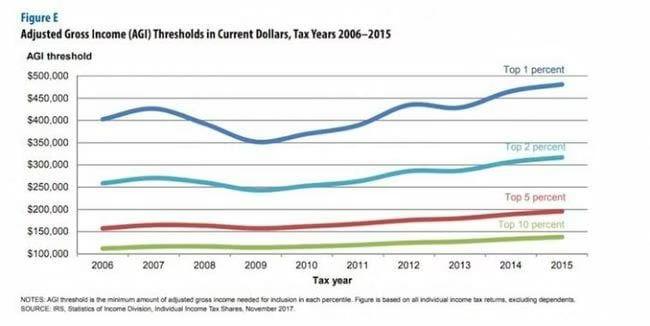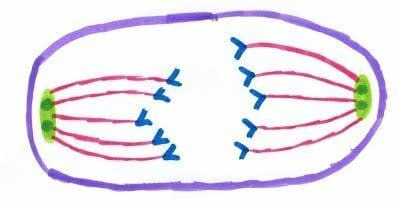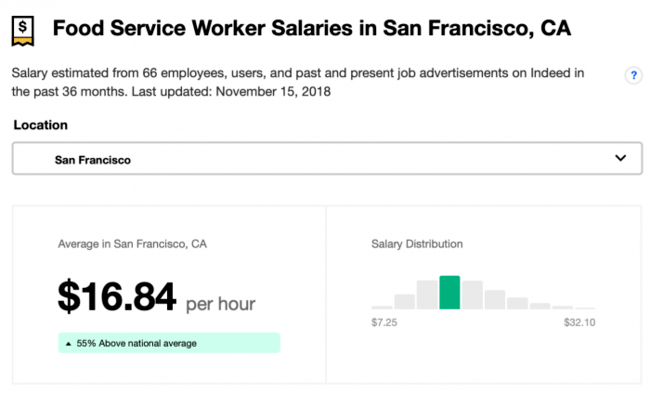The Polarization of the Bay Area’s Quality of Life

I’m a life-long Bay Area resident—born and raised—and I’m starting to see transformations in various communities that are setting off my dystopian spidey senses.
Basically, I’m seeing stark and disturbing differences between communities that are just a few miles from each other. I’ll take the Newark / Fremont area as an example, since I’m familiar with it, but I’ve seen this type of thing throughout the Bay Area over the last several years.
Dead Zones
If you go to run-down cities, like Newark, there are often homeless everywhere just wondering around like zombies. I’ve lived there since the 70’s, and within the confines of anecdote I can say it’s never been like this. Perhaps there was homeless before, but it wasn’t nearly as acute or visible.
Restaurants in these places are typically ghost-towns, with very few wait staff and virtually no interest in customer service. I often go into restaurants in Newark, San Bruno, and other similar areas where the staff might not even acknowledge you when you come in. And even then, it’s not a direct address—more like a chore that must be done. I would be mad about it, but it’s not their fault. Management has cut staff dramatically and put much more load on each person working—and without more pay.
The bathrooms in these towns are often splattered in urine and feces, with tons of graffiti on the walls. And toilets are often out of order, missing toilet paper, etc. Again, when mentioning this fact to the staff, they stare back at you with dead eyes and you realize you’re an asshole for even bringing it up. Their lives are infinitely more difficult than mine, and I’m acutely sensitive to that.
I was in a Starbucks in Newark yesterday (my hometown) and there were four homeless people camped out inside the store. The man next to us smelled so bad that we and other customers had to actually cover our noses to work nearby. It was the smell of fecal matter rotting on skin. He was rigged up with three extension cords and multiple gaming consoles just playing away for hours. I asked management about the smell, mentioning that the guy (a white guy probably in his 50s) seemed nice enough but he was disrupting the entire place, and they said he could do nothing whatsoever. And again, I felt like a horrible person for even talking to someone about it. If someone is in a bad enough spot to spend their time in a Starbucks, after not showering probably for days or weeks, then who am I to complain about my cafe experience?
The people in the cafes and businesses in these towns tend to seem beaten down, frayed, or otherwise downtrodden. Alternatively, they appear to not be participating in the rat race, e.g., they’re gamers or retires or high school kids not particularly focused on college.
After enough of these really negative experiences of seeing abject poverty and suffering—not just recently but over the last few years—I hear myself saying internally that I need to start going to "nicer" places. You know, places where there won’t be people stinking up the entire place because they decided to not participate in society (I know a lot about that particular person, and he’s definitely making that choice). Or another local guy with obvious drug problems with a suitcase worth of stuff strewn about his table.
I define a Star Trek liberal as someone who thinks the goal is to live in a society like that of Star Trek The Next Generation, i.e., highly diverse and focused on art and scientific exploration rather than materialism.
The problem is I feel bad for thinking this way. I am a Star Trek Liberal—again, born and raised in the Bay Area. I was not raised to run away from suffering, to run to the richer areas where I feel comfortable all the time. That’s why I drive from San Francisco where I live and work, to Newark (a 40-80 minute drive) to spend my free time. It’s home.
The idea of writing off my old stomping ground to head for more refined communities is repulsive to me.
But let’s talk about those places real quick, just to see the differences.
Thriving Areas
I’ve noticed that nice places are basically anywhere with a Philz coffee, Apple Store, or Whole Foods nearby (with a few exceptions like San Francisco proper).
The people in coffee shops there are younger, more Asian, and obviously very focused on either preparing for college, doing well in college, or kicking ass in their new careers. They’re basically high-grit people with educated parents or parents that highly value education for their kids.
The other types of people in these nicer communities’ cafes are 20s to 50s entrepreneurs meeting to talk about their businesses and their ideas. In these nicer areas I’d guess roughly 10% to 50% of the clientele at any given time are these types.
The staff in the restaurants are more attentive and courteous—no doubt due to the fact that they are working more for something to do and some side money, and not to support a family in an impossible situation.
The restaurants and businesses are well-kept, with functioning restrooms not covered in filth.
The streets, gas stations, and general infrastructure is more clean and presentable.
The people you see in stores and businesses and cafes are vibrant and energetic, and seem to obviously have some measure of optimism for their futures.
Polarization

The Anaphase step in Mitosis
What interests me about this situation is not just saying that some places suck, and some places are nice. That’s both rude and obvious.
What matters more to me are 1) the reasons this is happening, and 2) how this dynamic will continue to unfold over time. To me those two are strongly related, as I think they both share polarization, i.e., the bad places getting worse, and the nice places getting better.
This is where the dystopia comes in.
There are now indications that this investment could be slowing >.
My hometown of Newark has two main shopping areas, and they’re both completely taken over by Chinese businesses at this point. Like, completely. Of course there’s nothing wrong with Chinese businesses, but there’s a play now for Chinese business interests to find decapitated spots in the Greater Bay Area and to just move in and take over.
That doesn’t sound positive for me. Not because of any crazy conspiracy or anything, but just because it’s the clearest sign that what existed before wasn’t strong enough to survive on its own. It’s a clear indicator of decline when a single force (like Chinese tea shops) can come in and replace most of your local businesses in a matter of moments.
So that’s one side: your businesses get hollowed out and replaced with new money from the outside. The infrastructure basically rots. There’s garbage everywhere. There’s either far more homeless, or they are forced into the streets. There’s no customer service because you can’t pay good people enough to work there and management has to cut costs by hiring fewer people. And the schools are bad, so none of the highly-education focused Asians want to live there to raise their families.
That spells the end of (or at least a prolonged decline of) cities like Newark in my mind. But it’s not just Newark. It’s all up and down the East Bay coast. San Leandro, Hayward, most of San Jose, etc. They’re epicenters of suffering, full of people basically resigned to a third-tier existence.
Enter the green zone
And then, right next door, you have these little thiriving areas. Cupertino. Palo Alto. Parts of San Francisco. Walnut Creek. Pleasanton. And many other small enclaves of the successful.
What fascinates me is how aware of the poor areas these places are. They know how bad it is out there. And they know they live in the nicer area. And while it’s hard to be inside someone’s mind, I can’t help but thinking that they’re protecting their spots. They’re gatekeeping, whether consciously or not—to keep out the riff-raff.
So you wouldn’t go into a Starbucks in Walnut Creek and find a homeless white guy playing video games all day while chasing out customers with his smell. That wouldn’t happen. They’d kick him out as soon as someone complained—if they even allowed him in.
The streets are cleaner. The gas stations don’t have as many gang signals carved on the pumps. More of the population is educated. And the schools are better.
So all the rich—and by rich I mean well-paid tech workers and other professionals mostly—all move there to start their families.
Dystopian Gravity
My real problem is what seems to be coming as a result of this stratification.

$16/hour is $32K/year, which is less than it costs to live in many places in the Bay Area
Service Workers can’t afford to live in most of the nice areas in the Bay Area. Hell, many of them have to come in from out in the desert, like Fresno and Modesto. But at the same time, the nice areas need cooks, and waiters, and cleaning staff.
It seems obvious that some sort of eventual solution will be something like servants quarters: areas of the nice parts of town that are designated for the help. None of the nice folk will go over there, and the people who live there will know they’re not welcome in the city unless they’re working. It’ll be a nice little arrangement. Right up until somoene (like me in this piece) realizes how goddamn disgusting it is.
We’re building a Red Zone / Green Zone situation. Right here in the Bay Area. Right now.
The only thing we’re lacking is checkpoints around the Green Zones to make sure people from the Red Zone are allowed in to do some work for the educated folk. You think that sounds crazy—and it does—but places like New Orleans are already hiring private security forces > to protect nice areas. And numerous neighborhoods are investing in private security > to keep out the undesirables.
I think this massive income disparity, the destruction of the middle class, and the polarization of neighborhoods into rich or poor is going to have a major effect on people. I think it’s going to inject a social discord and fragility into our overall society that’s going to be extremely unhealthy.
I wish I had answers, but ultimately I think the cause is the changing nature of work. There are basically fewer and fewer types of jobs that pay lots of money, and they can only be filled by people with certain gifts or lots of luck. And the other 90% will mostly be stuck with service work that barely pays livable wages even outside of the Bay Area and similar places.
That employment and income difference is what’s powering this entire thing, and like a fresh wreck on the freeway it’s both tragic and hard not to notice.
If you’re a student of this type of phenomenon, and/or live in the Bay Area, hit me up below or directly and tell me what I got right and wrong here. I’m eager to better capture the problem so we can start exploring solutions.